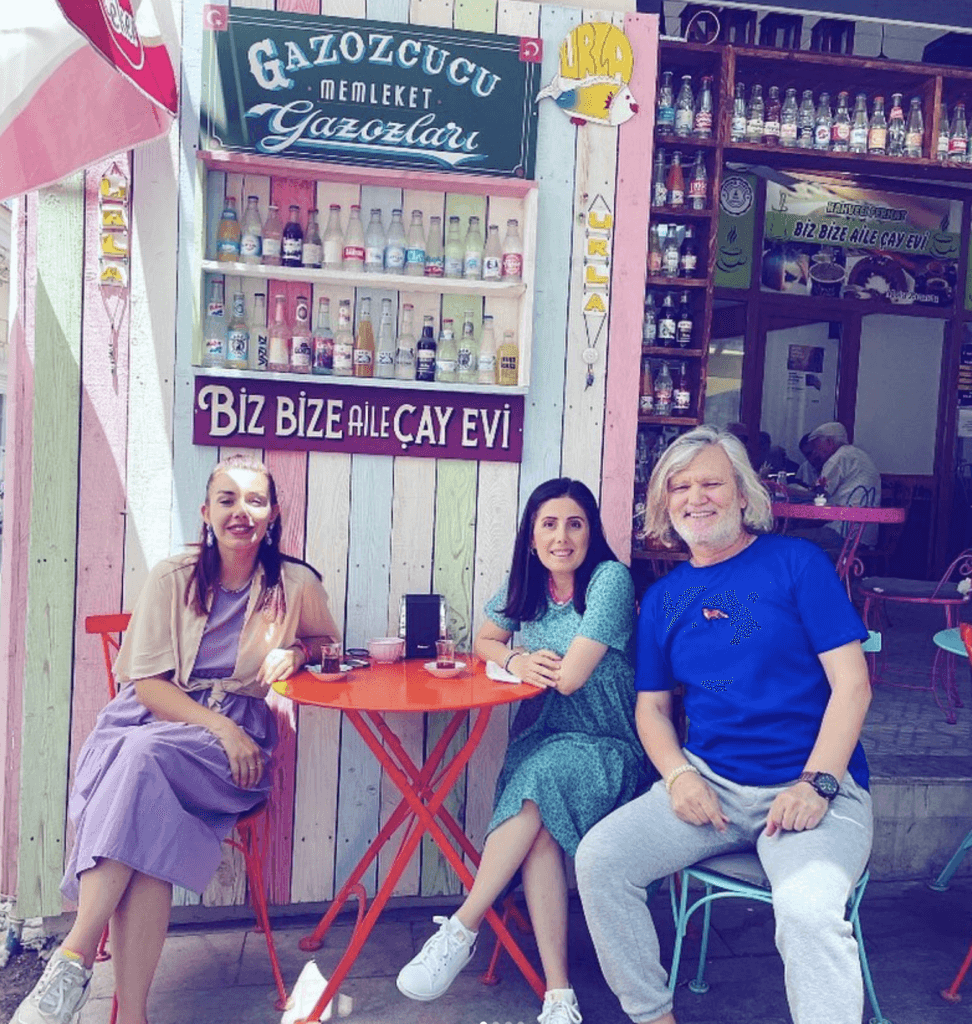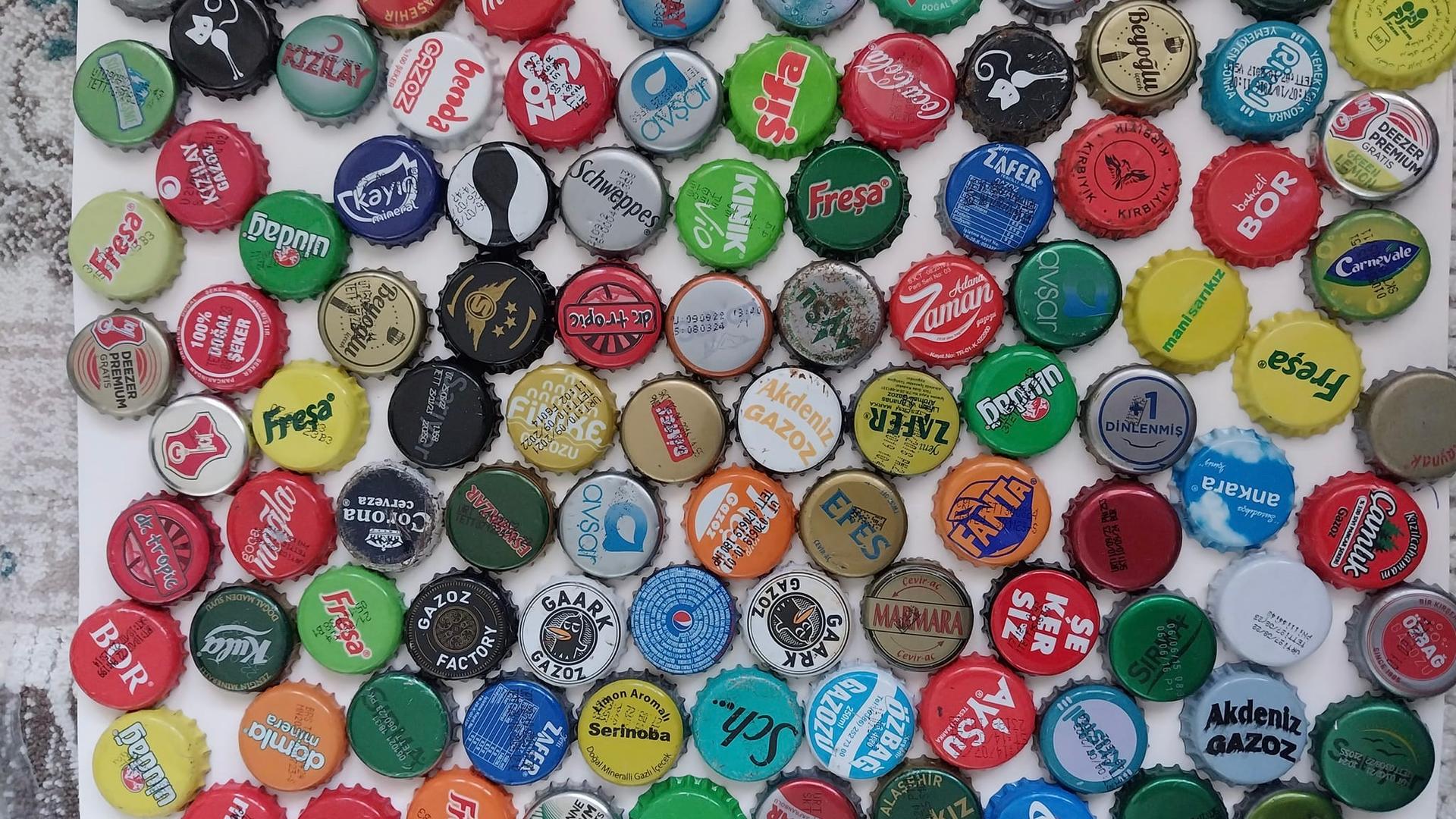It’s almost beach season in Turkey and for many visiting Urla — a harbor city that serves as a popular summer destination — no trip is complete without a cold, bubbly drink called gazoz, a soda that gets its flavors from the towns where it’s made.
At Ferhat İskit’s café — Gazozcucu — there’s plenty of coffee and tea to offer. But what people really come for is the gazoz.
“These are the local sodas of our country,” İskit said, “Every province has its own gazoz.”

His collection is proudly displayed, interspersed with 1980s decor and memorabilia along a wall for customers to browse.
The eye-popping array of colors is set apart by distinct glass bottles, often designed specifically for a brand.
Many are sweetened with local beet sugar. Sodas flavored with mandarin orange, raspberry and ginger are popular, but aromatic options like bergamot, purple basil and jasmine hold their own for adventurous drinkers.
“We started off with just three or five flavors, now we have 130,” İskit said.
İskit’s favorites are all from small-town micro-producers.
One from the kitesurfing coast of Alaçatı is flavored with mastic gum, an aromatic tree resin. There’s an almond gazoz from Datça, a peninsula famed for its almond orchards. Another lavender peach flavor pops right off the shelf in a vibrant shade of hot pink. It’s made in Denizli, a town that grows both lavender and peaches near the ruins of an ancient Roman city.
“These are always boutique businesses,” İskit said. “Small businesses don’t survive like this, commonly. So we buy what we can and bring them here.”
These nostalgic gazoz cafés are a boost for small soda makers hoping to find new fans around the country. İskit’s gazoz collection has become a destination for Urla vacationers, brimming with memories of a soda whose heyday was over 50 years ago.
“We might lose it someday, but now it’s nostalgic. It’s a beautiful thing, and it tastes good,” said 77-year-old Ahmet Söylemez. He prefers the classic, original taste of Mercan Gazoz, a brand from his hometown of Izmir that has been around since his childhood.
Gazoz was first manufactured at the beginning of the 20th century by a Greek Ottoman businessman fresh off a trip from France. The French phrase for carbonated water, l’eau gazeuse, hit the markets of Istanbul as gazoz and made a splash.
“Then, our locals made it,” Söylemez said.
Gesturing toward the wall of gazoz, he said, “Here we can see every corner of Turkey. Villages, big cities, all different people have taken the formula and produced it.”
“This [was] also a period of big migrations,” said Zafer Yenal, a food sociologist at Boğaziçi University in Istanbul. “Turkey has always been a land of migrations.”

The blossoming of gazoz brands continued in the middle of the 20th century, Yenal said, as people moved from small towns and villages to big cities. The taste of their hometown gazoz became a point of pride, and one that wasn’t too expensive to pick up at a local store.
“Even today, one of the first questions that people always ask each other is where you come from — memleket neresi?” Yenal said. “This is also kind of an indication of how strong and important local and regional identities are. Gazoz connected people to that sense of identity.”
In the 1980s, multinational brands like Coca-Cola and Pepsi became too much for local gazoz producers to compete. Only a handful have survived to the present day. But in the past five years, Turkey has seen a revival of small gazoz makers experimenting with old flavors.
Yenal sees their popularity as a response to globalization.
“It’s a very fleeting world. These kinds of local products might help them feel a bit more at home and more secure,” he said.
